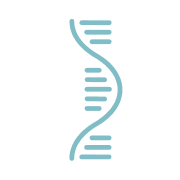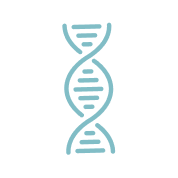BQC19 CORE ANALYSES
Sample analyses
BQC19 performs a series of sophisticated analyses on its own samples, enabling researchers to obtain multi-omic experimental data generated from a large set of samples at low cost. The results of these analyses can be obtained by submitting a request for access to BQC19 data.
Sample analyses include:
- Proteomic analyses
- Metabolomic analyses
- Immunoserological analyses
- Transcriptomic analyses
- Genomic analyses
- Clinical laboratory tests performed on the ROCHE platform


Proteomic analyses - Somascan
This technology enables the detection of nearly 5,000 proteins in a single blood plasma sample with high sensitivity and specificity, thanks to technology based on the use of DNA probes (aptamers).
Proteomic analyses - Olink Target 48
This technology is a proteomics platform that uses the proximity extension assay (PEA) method to simultaneously measure hundreds of proteins with high accuracy. The Olink T48 Cytokine panel technology was selected to quantify 48 cytokines simultaneously in low plasma volumes with high sensitivity and specificity.

Metabolomic analyses
The Metabolon platform provides a comprehensive overview of the biological processes in a sample by measuring 12,000 metabolites using a combination of ultra-high performance liquid chromatography and tandem mass spectrometry.

Immunoserological analyses
Andrès Finzi’s laboratory at CR-CHUM has developed specific ELISA tests that detect antibodies against SARS-CoV-2 in order to assess individuals’ immune responses.

Seroneutralization
By measuring the number of lysis plaques in host cells after adding viruses to BQC19 plasma samples, scientists at the National Microbiology Laboratory (NML) can quantify an individual’s neutralizing antibody titers.

Transcriptomic analyses
Numerous studies on viral diseases, including COVID-19, have identified links between molecular signatures in blood cells and disease outcome. RNA extracted from the PAXgene tube collected during the same visit as the plasma sample used for other tests is analyzed by standard short-read sequencing on poly-A RNAs at the McGill Genomics Center.

Genomic analyses of the host
Whole genome sequencing (WGS) and genotyping (GWAS) are performed on genomic DNA extracted from whole blood. These analyses include the identification of genetic variants in the host genome as well as the number of copies of certain genes (pangenomic sequencing) and genetic variations common to the entire genome (GWAS genotyping).

Viral genomic analyses
Genomic sequencing of SARS-CoV-2 is performed by the Quebec Public Health Laboratory (LSPQ) on certain positive samples. The goal is to identify the exact lineage of the variant in order to track the evolution of circulating variants in Quebec. Virus variants from certain BQC19 samples have been documented.

Clinical laboratory tests performed on the ROCHE platform
These analyses will provide standardized blood tests developed by the Roche Diagnostics panel. They will provide reference values for liver, heart, and kidney disorders, as well as standard inflammation parameters measured on plasma samples.